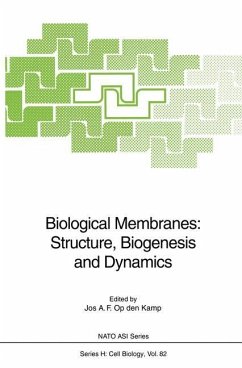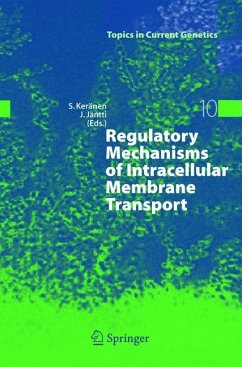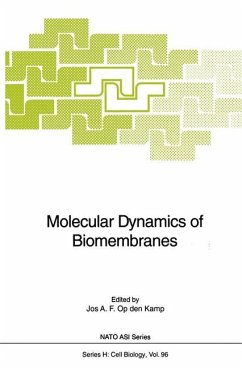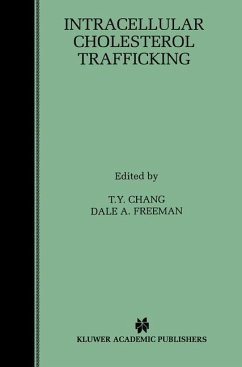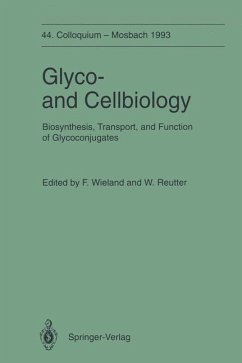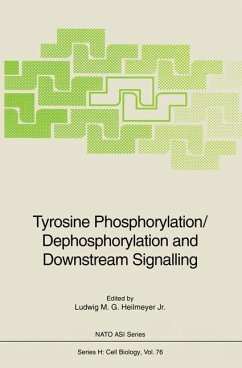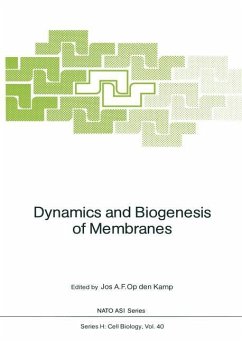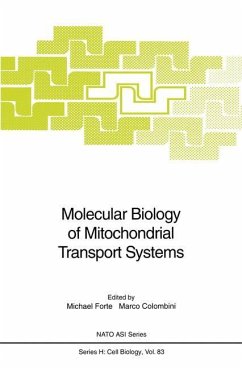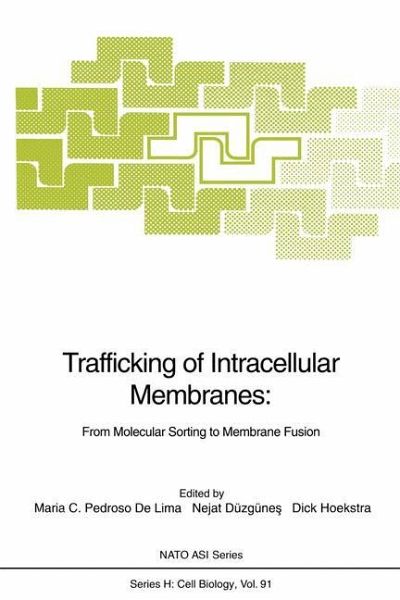
Trafficking of Intracellular Membranes:
From Molecular Sorting to Membrane Fusion
Herausgegeben von Pedroso De Lima, Maria C.; Düzgünes, Nejat; Hoekstra, Dick

PAYBACK Punkte
39 °P sammeln!
This volume contains the lectures presented at the NATO Advanced Study Institute (ASI) on "Trafficking of Intracellular Membranes: From Molecular Sorting to Membrane Fusion", held in Espinho, Portugal, from June 19 to June 30,1994. The objective of this Institute was to survey recent developments and to discuss future directions in the rapidly advancing field of membrane cell biology, with particular emphasis on the dynamical properties and intracellular flow of membranes. A wide range of interrelated topics around the central theme of intracellular trafficking of membranes was covered, includ...
This volume contains the lectures presented at the NATO Advanced Study Institute (ASI) on "Trafficking of Intracellular Membranes: From Molecular Sorting to Membrane Fusion", held in Espinho, Portugal, from June 19 to June 30,1994. The objective of this Institute was to survey recent developments and to discuss future directions in the rapidly advancing field of membrane cell biology, with particular emphasis on the dynamical properties and intracellular flow of membranes. A wide range of interrelated topics around the central theme of intracellular trafficking of membranes was covered, including lipid flow, membrane fusion, dynamics of membrane components, protein folding and assembly, vesicular transport in membrane biogenesis, exocytosis and endocytosis. A large variety of experimental techniques and systems, including the application of viruses and model systems, to study these processes was also considered. Membrane cell biology is a broad discipline which encompasses many scientific areas including cell biology, biochemistry, biophysics, virology, immunonology and genetics. Indeed, recent advances in the cell biology of membranes could not have been made without this multidisciplinary approach. Significant progress achieved during the last few years in understanding how newly synthesized lipids and proteins find their way to the cell organelles, how molecular sorting and the continuous flow of membranes allow each cellular membrane to maintain its own distinct molecular composition, and, thereby, the individuality of the various intracellular compartments, was discussed in considerable detail in this Institute.





